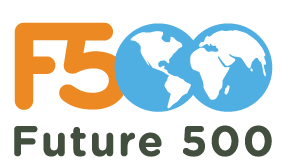Green, but Mostly White… The Lack of Diversity in the Environmental Movement Part 4
As a white male—the most over-represented demographic in the environmental field—I don’t have as much personal insight to contribute to the diversity discussion. So I would like to highlight here my education experience and how I came to work in the field, which I feel illuminates some of the broader diversity issues the community is facing. To preface, I believe access to resources is key.
I grew up in a working-to middle-class household, and was the first of my family to achieve a bachelors degree, and then a masters. Because of this dynamic, I understood the impact it had on my family and what a privilege it was. I completed my undergraduate at an excellent state school (UC Davis) and then graduate studies at an Ivy League (Columbia). Both of these experiences gave me perspective on the type of education received at public and highly elite private institutions and shined a light on to the role of class and access to education.
The perception is that Ivy League schools are filled with the children of the elite. And yes, there are several students from highly elite backgrounds, but not nearly as many as I thought. The perception is, too, that having Columbia on your resume is an instant boost—and there is definitely some truth to that. But in my opinion the biggest leg up was not the education itself (I felt UC Davis was actually a better experience than Columbia), it was that Columbia taught me in practical terms how to go about getting a good job, much more so than UC Davis (or any of my non-Ivy League friends’ educations).
Most universities have a professional development office that students can utilize, if they so choose. However, at Columbia I was required to pay a handsome amount to take a professional development course, which covered everything from the blatantly obvious (this is how you write an email…) to how to effectively write a resume and cover letter (use these types of verbs, this tone, quantify achievements, personalize to the organization and the hiring manager, etc.) to the vital importance of networking and how to go about it.
At the end of the day, Columbia taught me how to get a job. My friends in other public graduate programs did not have access to the same professional development, and they often did not have the same insights I learned, which put me at an advantage. When I link this experience to the field I currently work in, I know that it’s crucial to also teach the practical skills (alongside the subject matter content) at all education levels that will enable underrepresented demographics to compete for job positions.
This is not anywhere near the answer to everything, of course—much needs to be done in access to education way before the university level, and much needs to be done at organizations to encourage better hiring practices. Much also needs to be done to remove the systemic barriers that lead to and foster discrimination. However, practical job-hunting and networking skills are one major piece of the puzzle to foster and encourage diversity in the environmental field.
This article was originally published on Justmeans.
Future 500 is a non-profit consultancy that builds trust between companies, advocates, investors, and philanthropists to advance business as a force for good. Based in San Francisco, we specialize in stakeholder engagement, sustainability strategy, and responsible communication. From stakeholder mapping to materiality assessments, partnership development to activist engagement, target setting to CSR reporting strategy, we empower our partners with the skills and relationships needed to systemically tackle today's most pressing environmental, social, and governance (ESG) challenges.
Want to learn more? Reach out any time.
Blog posts by Brendon:







